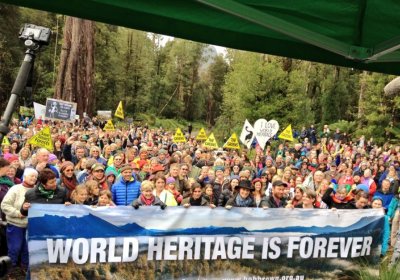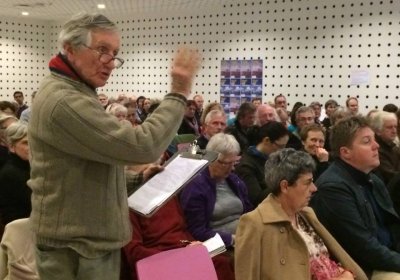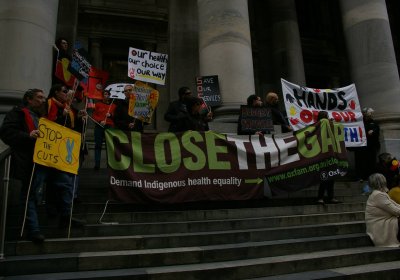In the Shadow of Gallipoli
By Robert Bollard
NewSouth, Sydney 2013
On April 25, 1915, Australian troops landed at Gallipoli on Turkey’s coast. They were part of a British imperial force aiming to capture Constantinople (now called Istanbul) and the land alongside the narrow waterway linking the Mediterranean to the Black Sea.
It was hoped this would enable British ships to enter the Black Sea and bring supplies to allied Russia.
1014
Three Muslims were killed and about 10,000 made homeless after attacks by Sinhalese Buddhist mobs during the week starting June 15.
Violence began in the town of Aluthgama after a rally by the Sinhalese-Buddhist chauvinist group Buddhist Power Force (BBS). It then spread to several other towns.
Muslim-owned shops, houses and vehicles were burnt by the mobs. Police were sometimes present, but did nothing to stop the violence.
The BBS has been engaging in a campaign of anti-Muslim propaganda and violent attacks for several years.
Breakthrough 2014, National Climate Restoration Forum, held over June 21 to 22 in Melbourne, brought together scientists, economists, engineers, business leaders and climate activists.
In some regards, the forum represented an important step forward for the Australian climate movement. It highlighted the urgent need to respond to the climate crisis and discussed the possibility of restoring a reasonably safe climate in which human civilisation could continue.
Nine days before the Senate changeover, the High Court ruled that immigration minister Scott Morrison’s cap on the number of protection visas he could grant was invalid.
In March, using his arbitrary ministerial powers, Morrison limited the maximum number of protection visas to be granted in the financial year to 2773 — the exact number already given. This was in response to Labor and the Greens uniting in the Senate to block the reintroduction of temporary protection visas (TPVs).
United Nations experts warned the city of Detroit on June 26 that service cut-offs could constitute a violation of the human right to water.
Several groups concerned about Detroit residents who had their water shut off for nonpayment had taken the unusual step of appealing to the UN for support in an effort to force the restoration of services.
“The rising sea levels caused by global warming threaten the very existence of some of our neighbours,” Fijian Prime Minister Frank Bainimarama told the Pacific Island Development Forum (PIDF).
“Kiribati, Tuvalu and the Marshall Islands ― and are already swamping the coastal areas of many Pacific nations, including Fiji.”
The Summit of the Group of 77 plus China, marking the alliance’s 50th anniversary, closed in Santa Cruz, Bolivia, on June 15 with the adoption of a declaration entitled “For a New World Order for Living Well”.
There were delegates from 104 nations out of the 133 from the global South that now make up the Group of 77 plus China. Bolivia is chairing the alliance this year, and its president, Evo Morales, hosted the summit.
Environment Tasmania and the Bob Brown Foundation released this statement on June 24.
***
World heritage experts and conservationists have welcomed the decision of the World Heritage Committee to reject the Australian government’s attempt to delist 74,000 hectares of forests from the Tasmanian Wilderness World Heritage area.
World heritage expert Alec Marr is in Doha as part of the Tasmanian delegation. He said: “The state parties on the Committee have reaffirmed that these forests are world heritage and will stay protected.”
Under intense lobbying by big electricity companies, the Tony Abbott government is attempting to scrap the Renewable Energy Target (RET) which aims to have 20% of Australia’s electricity come from renewable energy sources by 2020.
In response to this threat, a new community group called Solar Citizens is campaigning to defend existing solar power and extend solar to even more households. They have held public meetings in Brisbane, Adelaide, Sydney and Melbourne.
Venezuelan President Nicolas Maduro issued a call on June 7 to each grassroots unit of the governing United Socialist Party of Venezuela (PSUV) to submit 10 proposals for ways to improve how the government functions, Venezuelanalysis.com said on June 21.
“In response,” the article said, “throughout Venezuela, local units of PSUV militants, known as Battle Units Bolivar-Chavez (UBCh), devoted their weekly meetings to lively debates analysing political problems and attempting to reach consensus on solutions.”
About 250 Aboriginal people and their supporters gathered in solidarity at the steps of South Australia’s Parliament House on June 17 to protest against the proposed federal budget.
Included in the budget is $534 million in cuts to Aboriginal programs around the country. The rally was organised by Narungga elder Tauto Sansbury.
LIFE FOR MOST AUSTRALIANS IS GETTING HARDER, WHILE POLITICIANS SERVE THE WEALTHY. BUT PUBLIC BACKLASH IS BREWING INTO A MOVEMENT TO CHALLENGE THIS SYSTEM, WRITES SUSAN PRICE.
In handing down its first budget, the Coalition government echoed its National Commission of Audit, warning that a “business as usual” scenario for public spending on welfare, pensions, public services, health and education is “unsustainable”, even “irresponsible” in Australia today.
- Previous page
- Page 2
- Next page







